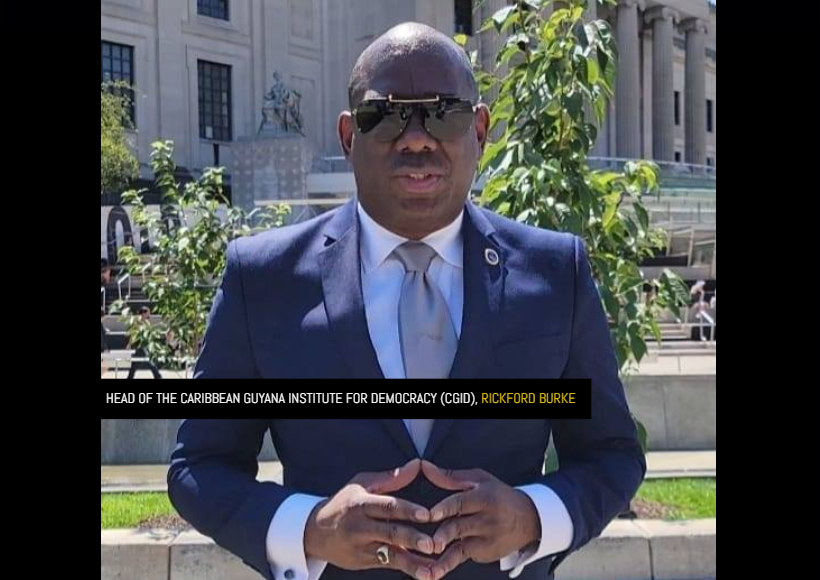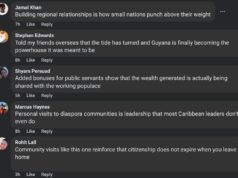Chief Justice (ag) Roxane George-Wiltshire on Friday ruled that the summons served on US-based Guyanese activist, Rickford Burke was unlawful and that the criminal defamation libel charges against him were unconstitutional.
In her ruling, the CJ stated that the charges violate the right to freedom of expression as guaranteed by the Constitution.
Burke, who has resided in the United States for over the past two decades, was accused of conspiring with other persons to publish defamatory libel with a view to extort money as set out in Case Jacket No. 3288 of 2023.
He was also accused of conspiring with other persons to offer to abstain from publishing defamatory libel with a view to extort money.In relation to the case, Magistrate Fabayo Azore had issued a summons for Burke.
Through his lawyer, Roysdale Forde S.C., Burke approached the High Court to challenge the summons and the constitutionality of the charges, arguing that the said offences are not summary conviction offences and or summary jurisdiction offences.His lawyers argued that under the Constitution of Guyana, the defamation of a private person by another person cannot be regarded as a criminal offence.
The case was brought against the State in the name of the Attorney General and Minister of Legal Affairs, Anil Nandlall, S.C and Magistrate Fabayo Azore.
In delivering the ruling on Friday, Chief Justice George found that the service of the summons to Burke in Brooklyn, New York, by a Guyana Police Force (GPF) officer was outside the scope of the law. This summons was issued by Magistrate Azore.
She stressed that the geographical reach of summons issued by a magistrate is limited to within Guyana’s borders.
“The summons only has efficacy within the geographical boundaries of Guyana. Service of a summons outside the jurisdiction of Guyana means that such service would be unlawful and therefore invalid…It is hereby declared that the purported service of the summonses was unlawful and a nullity,” she ruled.
Further, the Chief Justice was also critical of the prosecution’s decision to send an officer to the United States, describing it as an unnecessary expense to taxpayers.
She stated, “The court frowns on the course of action taken by the prosecution and the Guyana Police Force to in effect send an officer on a frolic on what must have been at taxpayers’ expense. It cannot be countenanced.”
Moreover, the Chief Justice also addressed the constitutionality of the charges brought against Burke. She noted that the State, in its submissions, failed to properly engage with this issue, merely asserting that the charges related to conspiracy to commit a felony, specifically extortion rather than defamatory libel. She pointed out that the evidence revealed otherwise, as the charges were grounded in the provisions relating to criminal defamation.Justice George-Wiltshire ruled that the offence of criminal defamation, and by extension any conspiracy charges linked to it, was unconstitutional as it violated Article 146 of Guyana’s Constitution, which guarantees freedom of expression.
She pointed to other Caribbean countries like Jamaica, Trinidad and Tobago, and Grenada, who have already abolished criminal defamation laws.
Chief Justice George said, “It is declared that the resort to criminal defamatory liable to protect individual reputation is unnecessary, disproportionately excessive and not justified and or required to protect reputations, rights and freedoms of other persons and are unconstitutional as being in violation of article 146 which is the freedom of expression provision in our Constitution.”
Notably, the court awarded Burke costs of $500,000.













